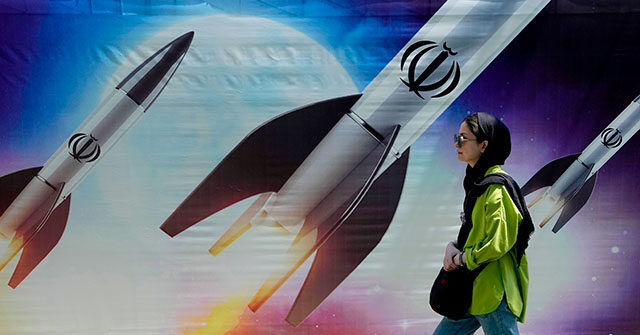In a recent statement, a senior Iranian foreign policy official, Kamal Kharrazi, indicated that Iran could produce a nuclear weapon whenever it chooses, particularly if “supreme leader” Ayatollah Ali Khamenei decides it is necessary due to an “existential threat.” Kharrazi leads the Strategic Council on Foreign Relations in Iran and claimed that the only barrier preventing Iran from developing nuclear weapons is a purported fatwa by Khamenei that prohibits such actions. However, it is noteworthy that no concrete evidence supports the existence of this fatwa, as formal religious edicts typically require documentation. Despite this, Iranian officials have long cited the alleged fatwa to present Iran as a credible participant in nuclear negotiations and a responsible actor in the realm of nuclear energy.
Kharrazi’s statements were released in response to recent tensions between Israel and Iran, particularly following Israeli airstrikes targeting Iranian missile production facilities connected to attacks on Israel. The Israeli Defense Forces (IDF) have engaged in proactive measures to counter Iranian efforts, which prompted various threats from Iranian officials, including members of the Islamic Revolutionary Guard Corps (IRGC), regarding a forthcoming serious assault on Israel. Kharrazi emphasized that the geopolitical climate could force Iran to alter its military doctrine in favor of nuclear armament if its survival were threatened, indicating a willingness to pursue nuclear capabilities in the face of perceived dangers.
The Iranian official also made a broader appeal to the United States and Western nations, urging them to reconsider their support for Israel in light of the ongoing conflict. Kharrazi criticized Western funding and military assistance to Israel, reflecting Iran’s position as a supporter of various militant groups in the region, including Hamas, which launched a significant attack against Israel in October 2023. That attack resulted in the deaths of approximately 1,200 individuals, further inflaming hostilities between Iran-backed groups and Israel. Tensions have continued to rise, with multiple Iranian proxies, including Hezbollah and the Houthis, declaring war on Israel, suggesting an ongoing instability in the region fueled by Iranian influence.
While the Iranian leadership, including Khamenei and President Masoud Pezeshkian, publicly maintains their disinterest in acquiring nuclear weapons, there are diverging opinions within Iranian ranks. For example, lawmaker Ahmad Bakhshayesh Ardestani previously claimed that Iran may not only possess nuclear weapons but is strategically choosing not to disclose this information. He suggested that Iran’s public stance aligns with the framework of the Joint Comprehensive Plan of Action (JCPOA) while secretly working towards nuclear armament as a means to counterbalance threats from the United States and Israel.
Kharrazi echoed previous sentiments from his own statements that the alleged fatwa enabling Iran’s nuclear restraint could be rescinded if the nation’s existence is deemed endangered. This reflects a significant shift in rhetoric, signaling that Iran may be closer to considering nuclear development as part of its military strategy. Additionally, heightened tensions have led to several IRGC officials voicing strong retaliatory statements against Israeli military actions that targeted Iran’s missile capabilities. These officials emphasized Iran’s readiness to respond with considerable force, asserting that they can strike at vital Israeli assets effectively.
Israel’s recent military operations aimed at curtailing Iranian missile production reflect the ongoing cat-and-mouse dynamic in the region. The IDF has conducted airstrikes focused on both missile manufacturing sites and Iranian aerial capabilities to eliminate immediate threats posed by Iranian attacks on Israeli cities. The ongoing conflict indicates a lack of resolution, with IRGC leadership making bold claims about Iran’s capacity for retaliation. Despite the absence of specific details about potential strikes, the rhetoric highlights the precarious balance of power in the region, further fueling concerns about the possibility of nuclear proliferation in Iran amidst rising hostilities and strategic posturing. As the situation unfolds, the international community remains watchful of Iran’s nuclear ambitions and the ongoing threats it poses to regional stability and global security.

